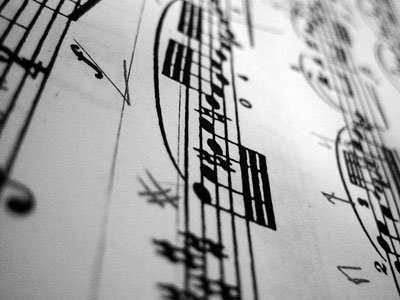All Nonfiction
- Bullying
- Books
- Academic
- Author Interviews
- Celebrity interviews
- College Articles
- College Essays
- Educator of the Year
- Heroes
- Interviews
- Memoir
- Personal Experience
- Sports
- Travel & Culture
All Opinions
- Bullying
- Current Events / Politics
- Discrimination
- Drugs / Alcohol / Smoking
- Entertainment / Celebrities
- Environment
- Love / Relationships
- Movies / Music / TV
- Pop Culture / Trends
- School / College
- Social Issues / Civics
- Spirituality / Religion
- Sports / Hobbies
All Hot Topics
- Bullying
- Community Service
- Environment
- Health
- Letters to the Editor
- Pride & Prejudice
- What Matters
- Back
Summer Guide
- Program Links
- Program Reviews
- Back
College Guide
- College Links
- College Reviews
- College Essays
- College Articles
- Back
"Mirror"
Through countless generations, through eras of ideas and trends, one that had never gone out of style is expression through music. The last vestige of it will never become dissipated. Indications of turning feeling to song has been evident since the beginning of time. Music was especially an outlet when acquisitiveness influenced property of human by human, and rights among these people were slim to none. Slaves used music to express their discontent and misery, before these racial confines were pulverized. Although reasons for a vent such as song have changed, many artists have found ways to unleash their thoughts through lyrics, and instrumentals. “Mirror,” by Lil Wayne featuring Bruno Mars, is an example of a symbolic song, with lyrics that go beyond the surface to express Wayne’s inner struggles.
“Mirror”, by Lil Wayne featuring Bruno Mars, insinuates the only person that can see the wretchedness and anguish beneath the surface is you. “Mirror" is Wayne's highest charting single as a lead artist in the UK, peaking at number 17 on the UK Singles Chart, an amazing ranking for the newly released song. From the beginning of Mirror’s intimation, it was a hit, an immutable fact. The song debuted at number 22 on the Billboard Hot 100, with Bruno Mars. Wayne performed the song all over, including South Africa. Rapturous prosperity from the song was ineffable clearly rising, as hits on his music video were trending. He shows conspicuous courtesy making references to Michael Jackson that act as a memorial, enlightening people with Michaels message to the world in a different tone and style. A modern day twist on “Man in the Mirror” has relived the king of pop.
The Carter IV is the ninth studio album by Lil Wayne, released on August 29, 2011 through Young Money Entertainment. It reached sixteenth on U.S hot 100, in digital downloads only. “Mirror” was a deluxe song on Wayne’s album, and one of the most popular. The entire album is imbued with lessons similar to “Mirror” such as self-reflection, and manufacturing a change. The song was certified Platinum by the RIAA for shipments over 1,000,000. The song and album both availed Wayne’s career, showing anomalous fans his songs with deeper, and significant messages.
On a more personal level, Lil Wayne uncovers his struggle in Mirror, an un-superficial way to express his hindrance. He conveys how he is the only one who can see the pain behind his assertiveness, and the fear beyond his smile. He is trying to forgive himself for his past, and attain strength from it. Society doesn’t understand his true self, the man he sees in the mirror, and the man he repeatedly finds himself talking to. He quailed at the thought of not being accepted, himself being the only person who understands. “I see the blood in your eyes, I see the love in disguise, I see the pain hidden in your pride, I see you're not satisfied.” Wayne is obviously trying to show that there is more to him…more that he is not proud of, in need to redress. He wants people to be aware of his true self, and to “understand the man I am.” Michael Jackson is referenced multiple times throughout the song, an inspiration to Wayne and Mars.
There was a time where song was used to express the discontent of slaves. To disseminate in a way that there masters couldn’t understand. The people that wanted to hurt them couldn’t understand. Not only did slaves sing in code, but music was a way to unchain their endeavor. Frederick Douglass once said, “If there is no struggle, there is no progress.” One gets where they want to go with sacrifice, and dedication, which isn’t always easy. Wayne expresses his need to mend what has been broken, as well as the odium he feels toward himself, and that all starts with the man in the mirror.

Similar Articles
JOIN THE DISCUSSION
This article has 0 comments.
